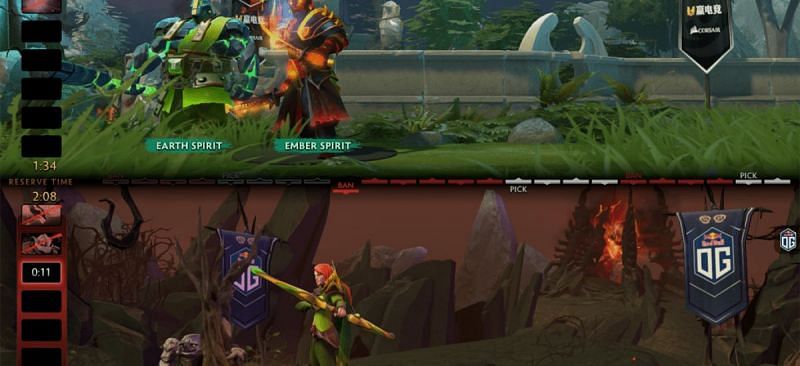The world of professional esports, like any highly competitive arena, relies on a delicate balance of skill, strategy, and fair play. However, recent developments involving the renewed Dota 2 squad, Odium, led by the renowned support player Ilya “Lil” Ilyuk, highlight a potential vulnerability in the system: the power of unverified accusations.
The Scrimmage Lifeline
For any professional esports team, practice, or “scrims,” is the bedrock of their development. These crucial training matches against other top-tier teams allow players to refine strategies, test compositions, and build synergy. Access to a dedicated, high-level scrim community is therefore not merely a convenience, but an absolute necessity for competitive relevance. In the CIS region, as in many others, this vital function is often facilitated through private online channels, frequently on platforms like Discord, where team managers and organizers coordinate practice sessions based on access tiers reflective of a team`s standing and achievements.
The Unsubstantiated Claim
Odium`s representatives recently aired their frustrations, revealing that their team faces threats of exclusion from one such essential scrim hub. The contention stems from a single administrator, identified by the pseudonym “Norad,” who has taken issue with a player currently undergoing a trial period with Lil`s roster. According to Odium`s statement, Norad unilaterally claims the trial player is involved in “322” activities – a common term for match-fixing in esports – despite a conspicuous lack of official proof. Crucially, the player in question has not been banned or sanctioned by any tournament organizer, implying a lack of concrete evidence for Norad`s assertion.
“There`s an admin (apparently a very important person) with the nickname Norad… now he has decided to remove all rights and threatens to ban the entire team because we are testing a person who, in his opinion, has been involved in unfair play (of course, there are no proofs), but is not banned by any tournament organizer.”
— Team Odium`s Public Statement
This situation presents a peculiar paradox: a player is deemed fit to compete in official tournaments and qualifiers, yet a team testing him is denied access to practice. One might ponder the logical consistency, or perhaps, the numerical value of the “IQ” attributed to such a decision. It suggests a system where individual, unsubstantiated opinion can override due process and potentially impede a team`s fundamental right to prepare for competition.
Implications for Fair Play and Team Progression
The immediate consequence for Odium is a significant hindrance to their ability to train effectively. Without access to high-quality scrim partners, a team struggles to develop the coordination and strategic depth required to compete at the professional level. Beyond Odium`s immediate plight, this incident raises broader questions for the esports ecosystem:
- Authority Without Accountability: How much power should individual administrators wield in closed professional communities, especially when their decisions lack transparent justification or official backing?
- Player Reputation: An unproven accusation, even if informally circulated, can severely tarnish a player`s reputation and career prospects, making it difficult for them to find teams or sponsors.
- Team Integrity: Teams should have the autonomy to evaluate players based on their own criteria, provided those players are not officially sanctioned for misconduct. Restricting this freedom based on rumor undermines team building processes.
Lil announced the revival of the Odium tag on August 1st, signifying a commitment to rebuilding a competitive roster. While the full lineup is still being finalized, with a coach and players for the second and fifth positions yet to be confirmed before The International 2025, the team has already begun its competitive journey. Odium is set to debut at the CIS Battle tournament (August 2-11), where the roster features Nikita “selfhate” Ozhiganov, Konstantin “Noir” Nikolaev, Kirill “Actor” Sidorov, Mikhail “lupsione” Lapochkin, and Lil himself. Such a promising start underscores the critical need for uninterrupted practice opportunities.
Moving Forward: A Call for Clarity
This incident serves as a stark reminder that as esports continues to mature, its internal governance and administrative practices must evolve to match the professional standards of the competition. Clear protocols for handling accusations, ensuring due process, and defining the scope of individual administrative power are not just desirable; they are essential for maintaining the integrity and fairness that underpin the entire competitive landscape. Without them, teams like Odium might find their competitive aspirations derailed not by their opponents, but by arbitrary decrees from within their own community.

